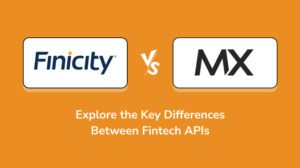Introduction to Fintech
In recent years, Financial Technology, or Fintech, has emerged as a transformative force, reshaping the landscape of traditional finance.
Fintech encompasses a broad range of technologies and innovations that aim to improve and automate the delivery and use of financial services.
From mobile banking apps to blockchain-based cryptocurrencies, Fintech development has revolutionized how individuals, businesses, and even governments interact with money.
Connect with us for Fintech Development Needs
Trusted by companies like Plaid, Yodlee, Codat.
The Popularity of Fintech
Early Beginnings
Fintech’s roots can be traced back to the 1950s with the advent of credit cards and electronic payments. However, the real surge in Fintech innovation began in the late 20th century with the rise of the internet and digital technologies.
Online banking, payment processing software, and algorithmic trading platforms laid the groundwork for what was to come.
Modern Innovations
The 21st century has witnessed an explosion of Fintech innovations, driven by advancements in artificial intelligence, big data analytics, and cloud computing.
Mobile payment apps like PayPal, Venmo, and Square have revolutionized peer-to-peer transactions, while robo-advisors and automated investment software have democratized access to wealth management services.
Positive Impacts of Fintech on the World

Financial Inclusion
One of the most significant benefits of Fintech is its ability to promote financial inclusion by providing banking services to underserved populations.
Mobile banking apps and digital wallets have enabled millions of people around the world to access basic financial services, such as savings accounts, loans, and insurance, without the need for traditional brick-and-mortar banks.
Access to Capital
Fintech has democratized access to capital for individuals and businesses alike. Crowdfunding platforms like Kickstarter and Indiegogo allow entrepreneurs to raise funds for their projects from a global pool of investors, bypassing traditional financing channels.
Similarly, peer-to-peer lending apps connect borrowers directly with lenders, offering competitive interest rates and faster approval processes.
Efficiency and Convenience
Fintech has streamlined and simplified many financial processes, making them more efficient and convenient for consumers and businesses.
From online bill payments and automated budgeting tools to real-time payment processing and instant money transfers, Fintech innovations have saved time and reduced the administrative burden associated with traditional banking methods.
Empowering Small Businesses
Fintech has leveled the playing field for small businesses, providing them with access to the same sophisticated financial tools and services as larger corporations.
Cloud-based financial accounting software development, digital invoicing platforms, and online payment gateways have empowered entrepreneurs to manage their finances more effectively, scale their operations, and compete in the global marketplace.
Disrupting Traditional Banking
Perhaps the most significant impact of Fintech is its disruption of the traditional banking industry. Faced with competition from agile Fintech startups and tech giants, traditional banks are being forced to innovate and adapt or risk becoming obsolete.
This competition has led to greater customer choice, lower fees, and improved service quality across the financial sector.
Connect with us for Fintech Development Needs
Trusted by companies like Plaid, Yodlee, Codat.
Fintech’s Role in Economic Development
Fintech plays a crucial role in driving economic development and promoting financial stability. By increasing access to financial IT services, fostering innovation, and facilitating capital flows, Fintech can stimulate economic growth, create jobs, and reduce poverty in both developed and developing countries.
Fintech and Sustainable Development Goals
Fintech has the potential to advance the United Nations’ Sustainable Development Goals (SDGs) by promoting inclusive and sustainable economic growth, reducing inequality, and fostering innovation.
By leveraging technology to address pressing social and environmental challenges, Fintech can contribute to building a more prosperous and equitable world for future generations.
You can hire fintech developers from ProtonBits to craft your financial software efficiently.
Challenges and Opportunities Ahead
While Fintech offers tremendous potential for positive impact, it also presents significant challenges and risks.
Cybersecurity threats, regulatory hurdles, and ethical concerns surrounding data privacy and algorithmic bias must be addressed to ensure that Fintech benefits society as a whole.
Moreover, bridging the digital divide and ensuring equal access to Fintech services remain ongoing challenges, particularly in low-income and rural communities.
Conclusion
In conclusion, Fintech has the power to revolutionize the global economy and improve the lives of billions of people around the world.
By promoting financial inclusion, empowering individuals and businesses, and driving innovation and economic growth, Fintech can positively impact the world in profound and lasting ways.
However, realizing the full potential of Fintech will require collaboration and cooperation among policymakers, regulators, industry stakeholders, and civil society to address the challenges and harness the opportunities ahead.
Happy Fintech Development!!
Connect with us for Fintech Development Needs
Trusted by companies like Plaid, Yodlee, Codat.
Frequently Asked Questions (FAQs)
1. How has Fintech changed the way we think about money?
Fintech has transformed our relationship with money by making financial services more accessible, convenient, and personalized. From mobile banking to digital currencies, Fintech innovations have reshaped how we save, spend, and invest our money.
2. What role does regulation play in shaping the Fintech landscape?
Regulation plays a crucial role in balancing innovation with consumer protection and financial stability in the Fintech industry. Well-designed regulatory frameworks can foster innovation while mitigating risks and ensuring fair and transparent markets.
3. What are some emerging trends in the Fintech space?
Some emerging trends in the Fintech space include the rise of decentralized finance (DeFi), the integration of artificial intelligence and machine learning into financial services, and the expansion of digital currencies and blockchain technology. These trends have the potential to further disrupt traditional finance and drive innovation in the years to come.
4. How can individuals and businesses benefit from embracing Fintech solutions?
Individuals and businesses can benefit from embracing Fintech solutions by gaining access to a wide range of financial services, improving efficiency and productivity, reducing costs, and gaining a competitive edge in the marketplace. Whether it's managing finances, raising capital, or mitigating risks, Fintech offers numerous opportunities for growth and success.





